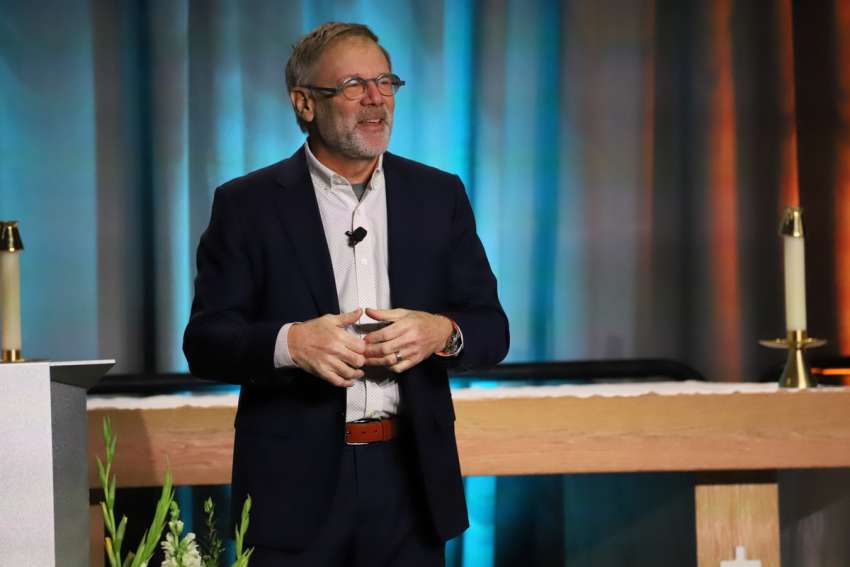Superintendent Sandra Marshall of Catholic Independent Schools Vancouver Archdiocese told the teachers, educational assistants and support staff, “It is reassuring to know that we are not doing this alone.”
Marshall reminded teachers that they are “beacons of hope in a world too often shrouded in darkness.”
Marshall talked about the isolation teachers feel in their classrooms.
“The CEC and faith development days help with that,” she said.
That’s why conference speakers were uniquely chosen to address common issues teachers are facing. This year, for example, a world-renowned expert on child resilience, Dr. Michael Ungar, was invited to speak about growing concerns among teachers about the mental health of their students and the social and emotional consequences the pandemic had on children.
Ungar, founder and director of the Resilience Research Centre at Dalhousie University in Halifax, spoke about fostering resilience among students, a topic that is in demand among teachers working with students hit hard by the social isolation brought on by the lockdowns. Resilience is not “bouncing back,” he said, but about community and relationships. Ultimately, a teacher helps a child become resilient when their relationship is grounded in negotiation and listening.
He told a story about a small girl who was brought to him after she was caught stealing candy. The thefts had been ongoing for two weeks, and after every heist, rather than eat the candy herself, she would share the candy with other children. She had been struggling to make friends.
Ungar asked her, “What happens when you steal?” She responded simply: “I have friends.”
Instead of punishment, they devised a plan at the school for her to help teach the junior kindergarten class, which helped her develop a sense of belonging and helped her peers notice her in socially desirable ways.
“She never had to steal again,” said Ungar.
Ungar said the story highlights how often the solution to a child’s problem is rooted in listening. Actions can still have consequences, but after she made amends, the girl wasn’t left alone. She became a partner in a plan to help her with her problem. She could understand the problem was social isolation, not theft specifically, but she didn’t know the solution. The teacher’s job became creatively approaching a struggling student to find a way that she could become a better part of the community.
At first glance, the approach might seem counterintuitive, and Ungar recalled some parents objecting to what they saw as a reward. Ultimately, by helping her to thrive, something more profound than justice was served and she became a meaningful community member.
A lighter highlight of the conference was the keynote speech given by celebrity chef and Catholic priest, Fr. Leo Patalinghug.
Patalinghug spoke to the teachers about the idea of gestalt — of things that are greater than the sum of their parts. Food is like this, as ingredients are mixed to form something more than they were sitting on the counter. The Eucharist is the greatest example of food that binds us to the greater body of Christ.
Archbishop Carney Secondary teacher John Paul Escala said the priest’s talk made him reflect on whether his classroom gave students a sense of belonging. The talk was refreshing, he said, because it reminded him that in an excellent educational environment, “students are not the only ones that are nourished, but also the educators.”


